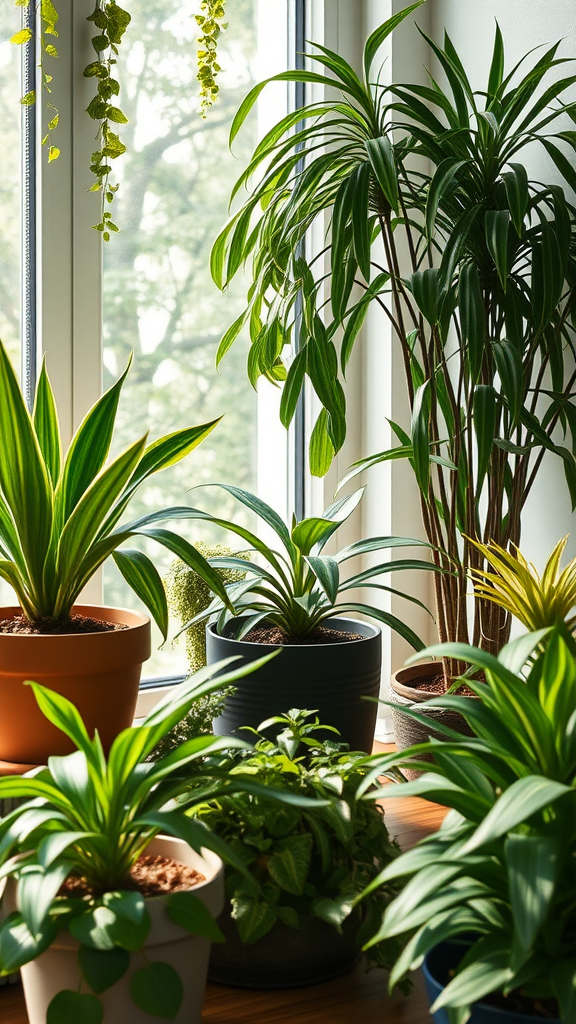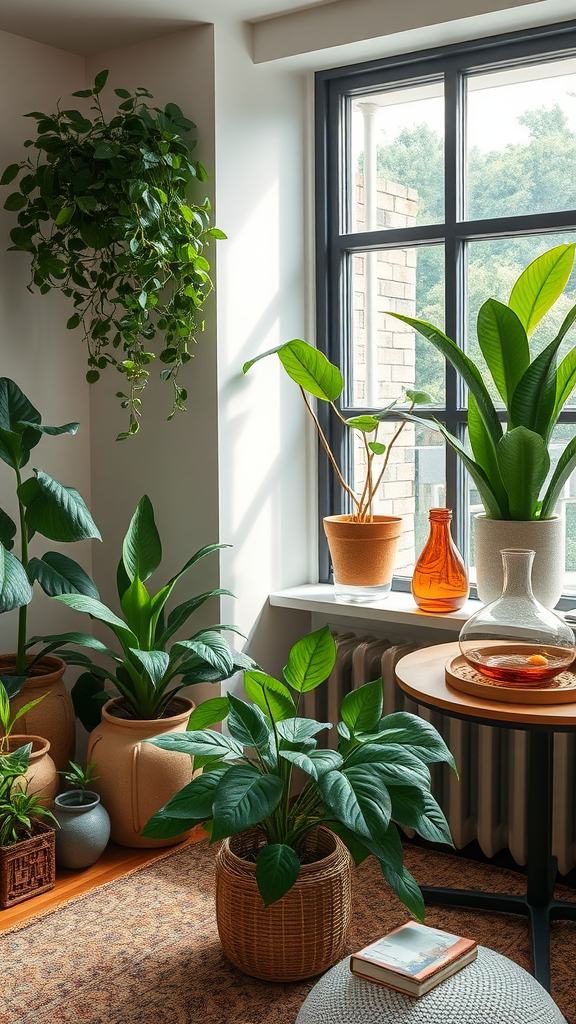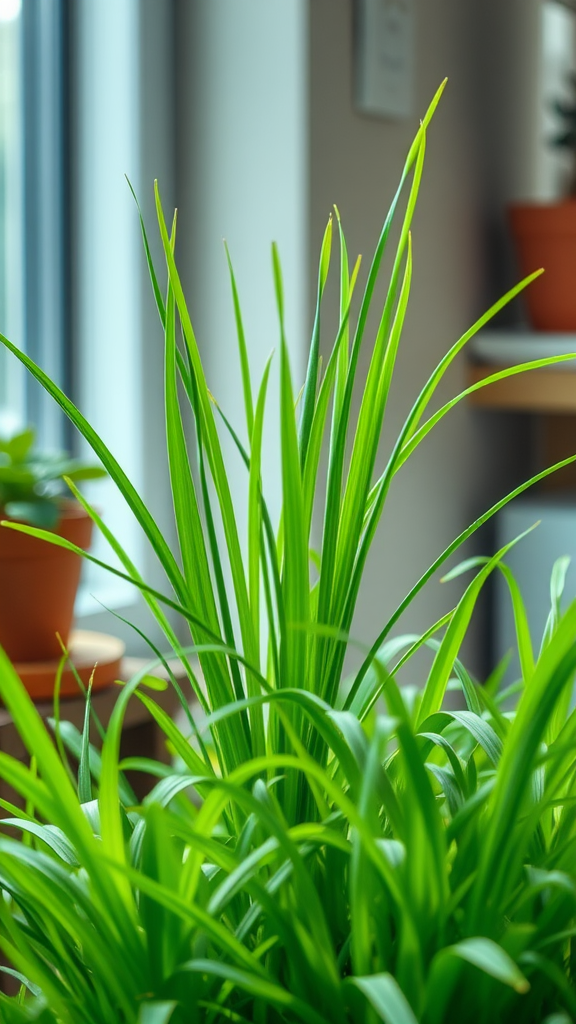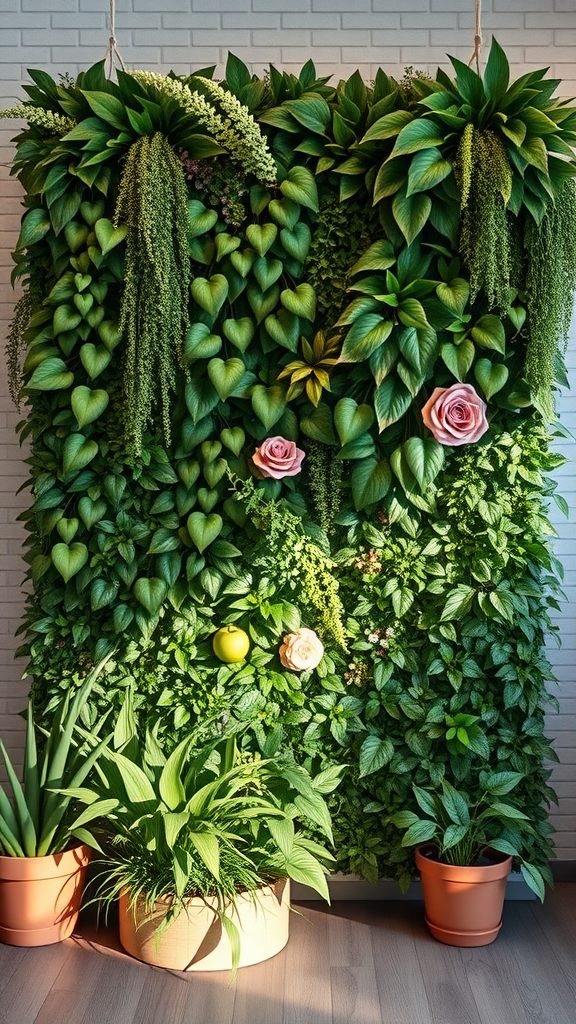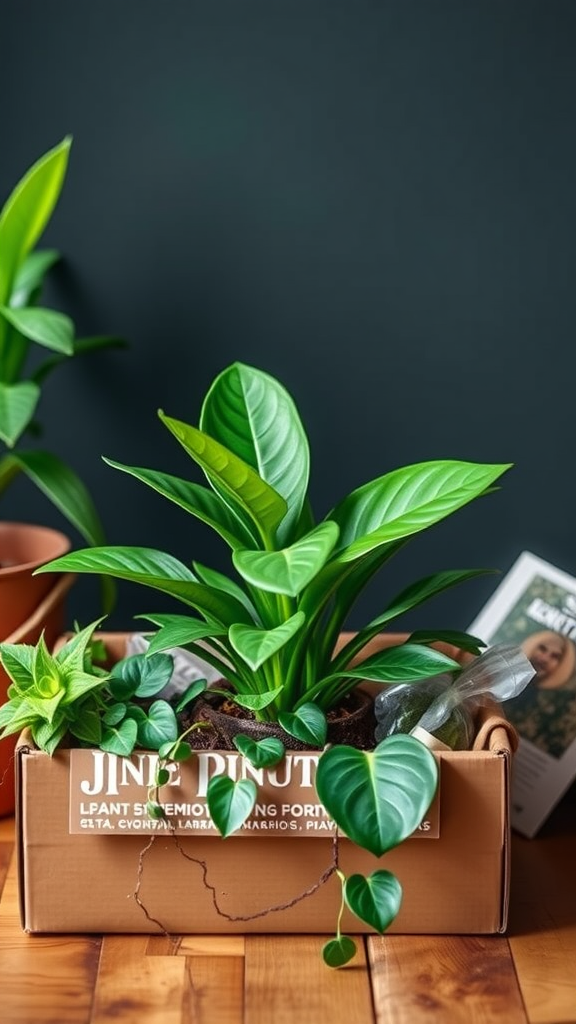Green Living: Embracing Houseplants for a Healthier Home
Creating a greener home can have profound effects on your well-being, and embracing houseplants is one of the most enjoyable ways to achieve this. Not only do houseplants enhance your living space aesthetically, but they also contribute significantly to a healthier and happier environment.
Why Choose Houseplants?
Houseplants provide numerous benefits, making them an essential addition to any home. Here are some of the key advantages:
- Air Quality Improvement: Plants naturally purify the air by absorbing carbon dioxide and releasing oxygen. They can filter out toxins and pollutants, aiding in creating a cleaner atmosphere.
- Humidity Regulation: Houseplants release moisture vapor during transpiration. This process helps to maintain optimal humidity levels, which can prevent dry skin and respiratory issues.
- Stress Reduction: Being surrounded by greenery has shown to lower stress levels. Views of nature or simply being next to plants can help you feel more calm and relaxed.
- Boosts Creativity and Productivity: Studies have indicated that incorporating plants into your workspace can enhance focus and creativity. Whether at home or in an office, a few plants can stimulate your mind.
Choosing the Right Plants
Selecting houseplants that fit your lifestyle is essential for successful green living. Consider these factors when choosing your plants:
- Light Requirements: Understand which areas in your home receive bright light versus low light. Some plants, like succulents, need plenty of sunlight, while others, like pothos, thrive in less light.
- Watering Needs: Consider how often you can water your plants. Low-maintenance options like snake plants and ZZ plants are perfect for busy schedules.
- Space Considerations: Assess the space available in your home. Larger plants, such as fiddle leaf figs, can serve as stunning focal points, while smaller varieties fit perfectly on desks or windowsills.
Creating Your Green Oasis
Transforming your home into a green oasis can be a rewarding project. Here are tips for incorporating houseplants seamlessly into your decor:
- Mix and Match: Combine different types of plants with varying heights, colors, and textures. This variety adds depth and interest to any room.
- Utilize Vertical Space: If you’re tight on floor space, consider hanging planters or wall-mounted shelves to display your plants. This not only saves space but also creates an eye-catching display.
- Group Plants Together: Grouping plants can create a mini indoor garden. Choose pots with similar styles or colors for a cohesive look.
- Nature-Inspired Decor: Balance your plants with nature-inspired decor, such as wooden furniture or nature-themed artwork, to create a harmonious environment.
Maintaining Your Plants
To keep your houseplants thriving, regular maintenance is essential. Here are some tips:
- Water Wisely: Always check the soil moisture before watering. Overwatering can lead to root rot, while underwatering can cause leaves to drop. A general rule is to water when the top inch of soil feels dry.
- Feed Monthly: Use a balanced fertilizer while your plants are actively growing, generally from spring to fall. Follow the instructions for the right proportions.
- Keep Leaves Clean: Dust on leaves can hinder plant growth. Wipe them with a damp cloth regularly to keep them clean and allow them to breathe better.
- Watch for Pests: Keep an eye out for any signs of pests, such as webs or discoloration. Early intervention can prevent a small problem from becoming a bigger issue.
Final Thoughts
By embracing houseplants, you can create a healthier home that promotes well-being and happiness. From improved air quality to stress relief, the benefits of green living are abundant. Start small by adding a few plants, and watch how they can transform your life and space into a peaceful haven. Each plant not only enhances your surroundings but also contributes to a more sustainable lifestyle. So, go ahead, invite some green into your world!
The Psychological Benefits of Gardening and Green Spaces
Engaging with nature through gardening and spending time in green spaces can work wonders for your mental health. The act of nurturing plants not only beautifies your surroundings but also contributes significantly to your well-being. Research suggests that the psychological benefits of gardening are numerous, and many people experience them firsthand. Let’s explore how connecting with nature can transform your life.
Stress Reduction
One of the most immediate benefits of gardening is its ability to reduce stress. Spending time outdoors and interacting with plants can lower cortisol levels, a hormone associated with stress. You might find that just tending to your garden can transport you away from your daily worries. The rhythmic actions of planting, watering, and weeding can be meditative, allowing your mind to unwind.
Enhanced Mood
Gardening has been shown to improve mood and enhance feelings of happiness. When you grow your own plants or vegetables, the act of nurturing them can lead to a sense of accomplishment. Each new bloom or harvest can provide a serotonin boost, creating a positive feedback loop. This interaction with nature can promote a sense of joy and well-being in your everyday life.
Increased Physical Activity
Gardening is a form of physical activity that helps keep you fit. Even light gardening involves movements like bending, lifting, and digging, which can keep your body active and healthy. When you cultivate a garden, you’re not just growing plants; you’re also maintaining your physical health, which in turn can positively impact your mental well-being. Remember, a healthy body often leads to a healthier mind.
Community Connection
Joining a gardening group or sharing your gardening experience with neighbors fosters community connection. Engaging with others who share similar interests can lead to meaningful relationships. The support you receive from being part of a community can uplift your spirit. This social interaction is vital for mental health, especially in today’s increasingly isolated world.
Mindfulness and Presence
Gardening encourages mindfulness—the practice of being present in the moment. When you are focused on tending to the plants and observing their growth, you shift your attention away from anxiety and distractions. This moment-to-moment awareness can significantly reduce symptoms of anxiety and depression. Think of it as a form of meditation, where the garden becomes your sanctuary.
Tips to Enhance the Psychological Benefits of Gardening
- Start Small: If you’re new to gardening, begin with a few pots of herbs or flowers. This will help you ease into the experience without feeling overwhelmed.
- Be Consistent: Create a routine. Whether it’s watering plants daily or spending a few hours on weekends, consistency breeds familiarity and confidence.
- Use All Five Senses: Engage your senses by observing colors, scents, and textures in your garden. This can deepen your connection to nature.
- Document Your Progress: Keep a gardening journal. Record your plants’ growth, your feelings, and any changes in your mood as you nurture your garden.
- Connect with Nature: Spend time in public parks or botanical gardens. These places are designed to evoke peace and tranquility.
A Natural Antidepressant
Several studies indicate that gardening can act as a natural antidepressant. When you immerse yourself in nature, your body produces endorphins—chemicals in the brain that act to relieve stress and enhance pleasure. This means spending time in your garden may not only lift your mood but also help in managing depressive symptoms effectively.
Creative Expression
Gardening allows for creativity and self-expression. Designing your garden or choosing plant combinations can be a form of art. This creativity provides an outlet for your feelings and fosters a sense of identity and personal achievement. The satisfaction gained from creating a vibrant garden can be incredibly fulfilling.
The psychological benefits of engaging with green spaces and gardening are significant and multifaceted. By creating a bond with nature, you can experience enhanced mood, reduced stress, and a stronger sense of community. By making gardening a part of your routine, you can not only transform your living environment but also rejuvenate your mind and spirit, inviting positivity into your life.
Conclusion
Embracing green living through houseplants and gardening can dramatically enhance your life. By incorporating houseplants into your home, you create a vibrant environment that not only purifies the air but also boosts your mood. The simplicity of caring for these plants can instill a sense of responsibility and routine, adding a sense of purpose to your daily activities. Every time you water your plants or watch them grow, you experience a small victory that nurtures your mental well-being.
The psychological benefits of gardening and green spaces are profound. Engaging with nature has been shown to reduce stress, anxiety, and depression. Whether it’s tending to a small window garden or strolling through a local park, these experiences connect you to the world around you, grounding you in the present moment. You may find that spending time outdoors and with plants fosters creativity and sparks joy, igniting your passion for life.
Making the choice to lead a greener lifestyle not only transforms your physical surroundings but also nurtures your emotional health. By surrounding yourself with plants and engaging in gardening, you cultivate a sanctuary of peace and positivity. As you embrace green living, remember that these small changes can lead to significant transformations. It’s not just about having plants; it’s about fostering an enriching and life-affirming experience that supports well-being in all its forms. Your journey towards a healthier home and mind begins with simple steps, leading you toward a more vibrant and fulfilling life.

